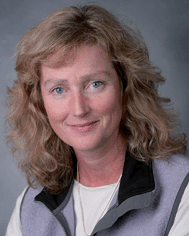Emerging Investigators themed issue
Deborah
Swackhamer
Chair, JEM Editorial Board, School of Public Health, University of Minnesota, USA
 Deborah Swackhamer | Professor Deborah Swackhamer is Professor of Environmental Chemistry in the Division of Environmental Health Sciences in the School of Public Health, and serves as Co-Director of the Water Resources Center, at the University of Minnesota. Professor Swackhamer received a BA in Chemistry from Grinnell College and a MS and PhD from the University of Wisconsin-Madison in Water Chemistry and Limnology & Oceanography, respectively. After two years post-doctoral research in Chemistry and Public & Environmental Affairs at Indiana University, she joined the Minnesota faculty in 1987. She has studied the processes affecting the behavior and fate of persistent toxic chemicals such as PCBs, dioxins, and pesticides in the Great Lakes for the past 20 years, including sediment accumulation, source determinations, water column processes, and foodweb bioaccumulation. Her current research includes projects investigating the bioaccumulation, exposure and impacts of environmental estrogenic chemicals. |
This is the first time that the Journal of Environmental Monitoring (JEM) has supported the publication of an ‘Emerging Investigators Issue’ and we are extremely pleased with the result. The contributors to this issue truly reflect the broad and diverse range of subjects the journal addresses and by implication the significant challenges we face in our field today. More importantly, this issue paints a picture of the issues that the next generation of scientists in our field believe are important.
Our contributors come from a wide range of countries including Switzerland, Italy, USA, Germany, Finland, Canada and Japan, and a good mix of review and primary research articles have resulted. Aspects of environmental science covered by these authors range from the monitoring of aquatic animals to the ecology and epidemiology of infectious diseases, from solid waste incineration to treatment of landfill leachate, waste water and its management, from manganese toxicity in human cells to insights into the transformation mechanisms of organic contaminants in natural systems.
JEM supports a variety of prizes and awards for students and younger scientists during the year at conferences and meetings as well as the RSC/SETAC Award presented annually at the SETAC USA meeting. We hope that this issue will give greater prominence to the rising stars in our field of endeavour and encourage organizers of conferences and meetings to hold more Emerging Investigators sessions to promote new scientists and new ideas.
We hope you enjoy reading this issue.
| This journal is © The Royal Society of Chemistry 2010 |
